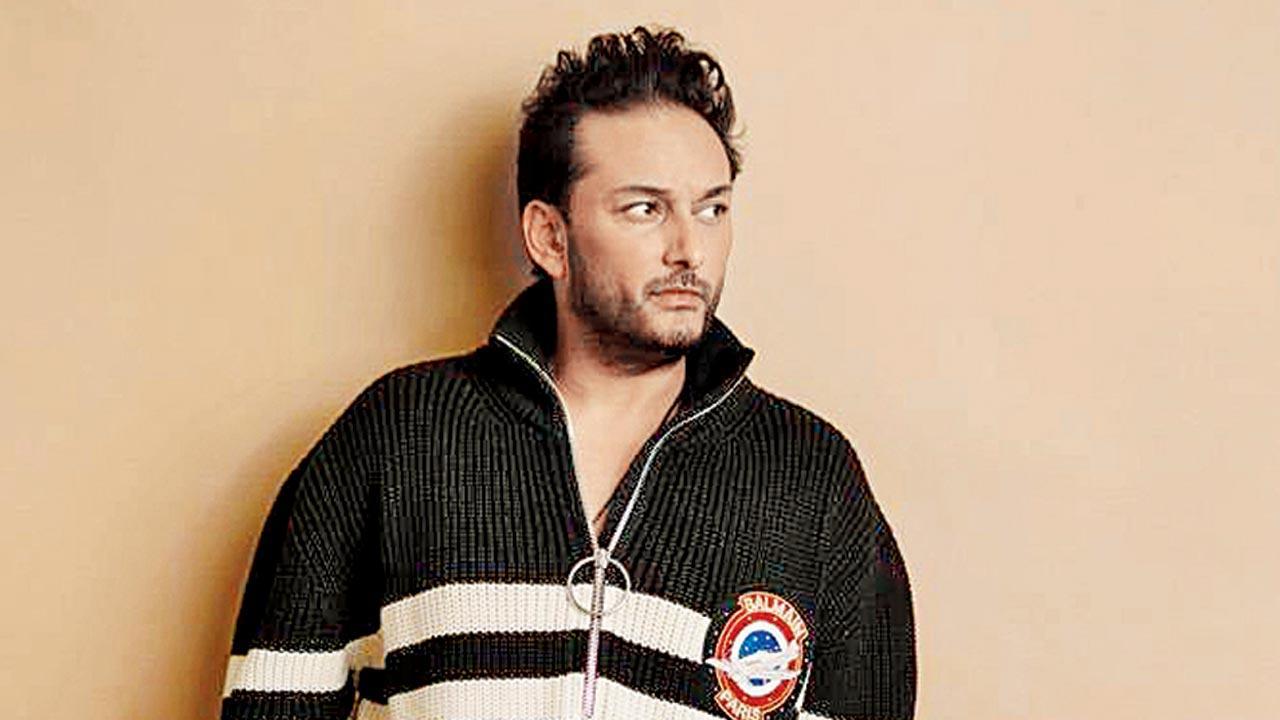Angel eyes and Can’t get enough hitmaker Raghav returns to the studio (and the industry) with Desperado; he discusses what’s in store for his fans

Raghav Mathur
Washed in hues of red and black, Desperado is in every way an homage to Raghav Mathur’s debut album, Storyteller. In this interview, he says it was intended to be so, as he had set out to see if he could revive the sort of music that got ’90s kids, up and grooving. He could, indeed!
ADVERTISEMENT
Edited excerpts from the interview.
You have been referring to this song as a comeback of sorts. Why did you step away, and what inspired you to return?
I had been putting out records. I also [worked] on something with Mr [AR] Rahman, and had a few hit records here, in Canada. This song is an homage to my first album. [After its success], my producer Mushtaq and I tried to navigate our way [in the industry]. It was easy to get samples of songs like Kabhi aar kabhi paar [approved], but then, the business changed. In 2009, companies like VH1 were devoting only a small share to pop music. Eventually, we went from being the most influential people, to not having the same degree [of power]. The kind of work that I was doing in fusion needed a thriving indie pop scene, which was no longer there. Of course, I could have done things differently to have more equity within the industry, but the industry changed a lot too. Because my music was not unabashedly Bollywood, it was a strange place to be in. This isn’t to lambaste anyone. This was capitalism. Companies like MTV were faced with the decision to give a platform of such significance to artistes like me, where the budget for promotions are significantly lower than what would come out of a film house. Filmmakers spend millions on a soundtrack. We couldn’t match those numbers. When you see who you’re up against for the same platform, that makes it [less] confusing. I went from having a number one album to having to pay to make my records, hire my own PR team and plan my own tours.
Musically, how would you say you’ve evolved over the years?
[My recent tracks] Maayara and Sufi are songs that I’m really proud of. The breadth of my work cannot be spoken about without discussing them. There was a yearning in me to explore a dark, contemporary sound. But, what influenced me during the lockdown was that I had the time to see videos on Instagram, and notice the renaissance of my early work. While those who grew up with my music were nostalgic, the new generation had also been making reels to my music. I thought it was a good time to go back and see if we could create that magic again.
Also Read: Sonu Nigam: Live music a litmus test
How did you zero in on the Hindi song, Chura liya, for Desperado, and did you actively think about making any amends to your style to suit contemporary listeners?
I did not. I thought, I’m in the studio with Mushtaq, the guy who understands me as a creator, and whom I understand, and we decided against paying heed to anything. We didn’t write to any brief, or look for any influences. I’ve never sampled a male voice on my records, which I did now for this song. The way Rafi saab sits over the beat [in this verse] of Chura liya makes it sound cool. Also, we knew that we wanted Tesher to feature in it. He had the vibe, and was at the [peak] of fame after Jalebi baby.
As someone who received a lot of love early on in your career, how do you reflect on your success?
When my first album came out, I had been trying to get a record deal for seven years. In your early 20s, seven years is a long time. It was rough, because I was staying in places like Los Angeles and London without money. It was in those moments that I came up with those ideas and wrote those hooks. It was validating. My parents were incredibly supportive. People might have wondered if they were doing the right thing by supporting me, so, from the family’s perspective, it is validating. That motivation is back again, because now, I’m a dad. I want my daughter to see what I experienced, know what my legacy is, and what I am all about.
 Subscribe today by clicking the link and stay updated with the latest news!" Click here!
Subscribe today by clicking the link and stay updated with the latest news!" Click here!







